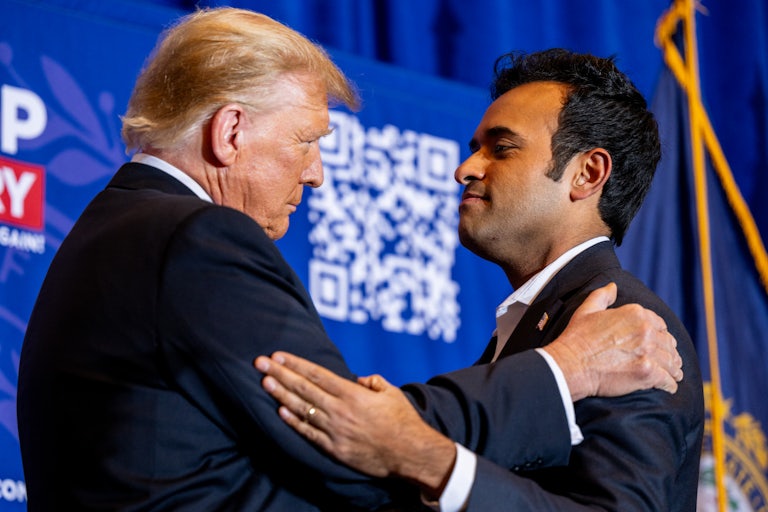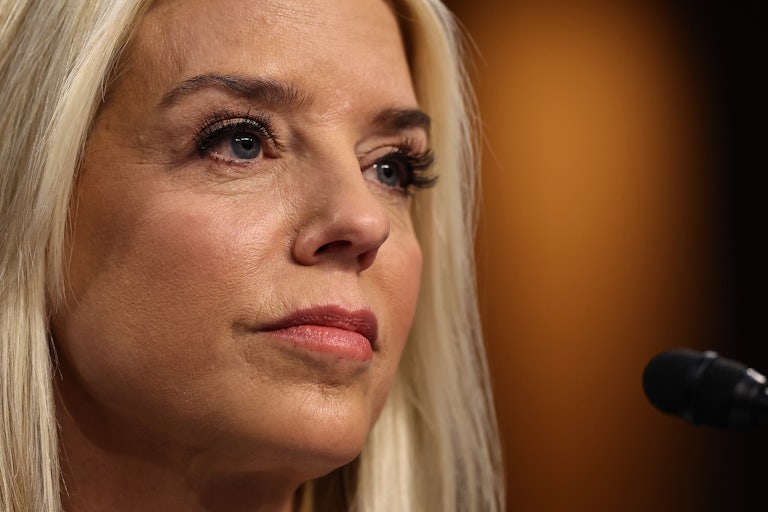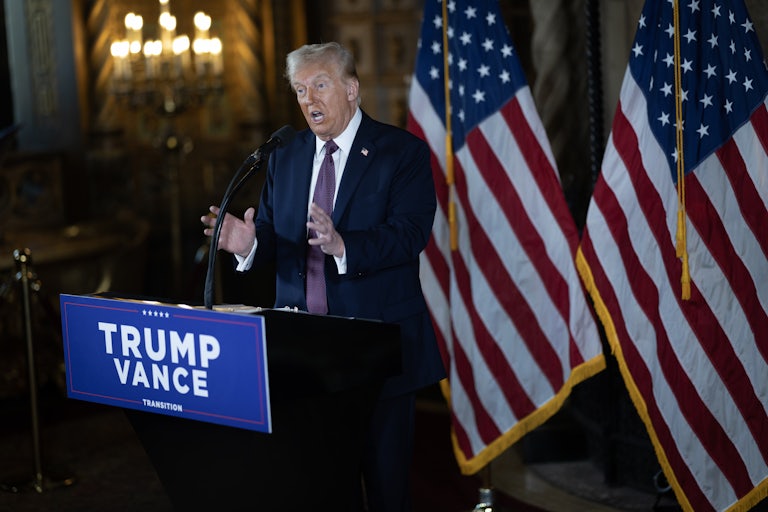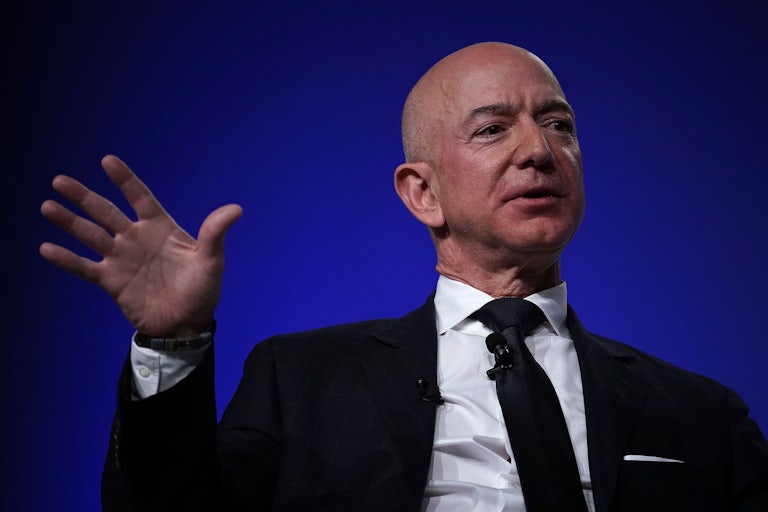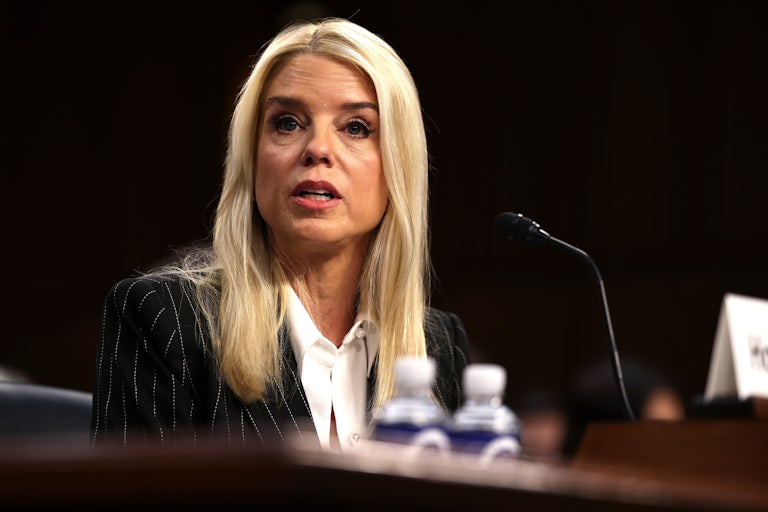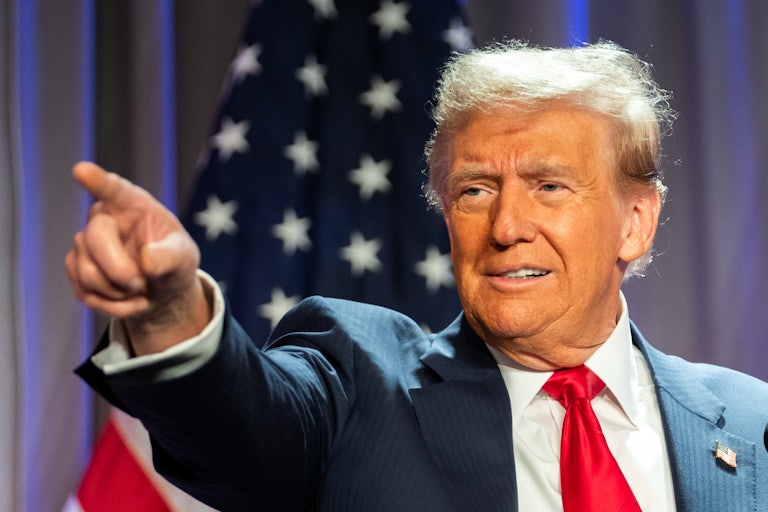Alito Asks if Pornhub Has Essays in Unbelievable Supreme Court Hearing
The Supreme Court justice went down a bizarre line of questioning in the middle of the hearing.
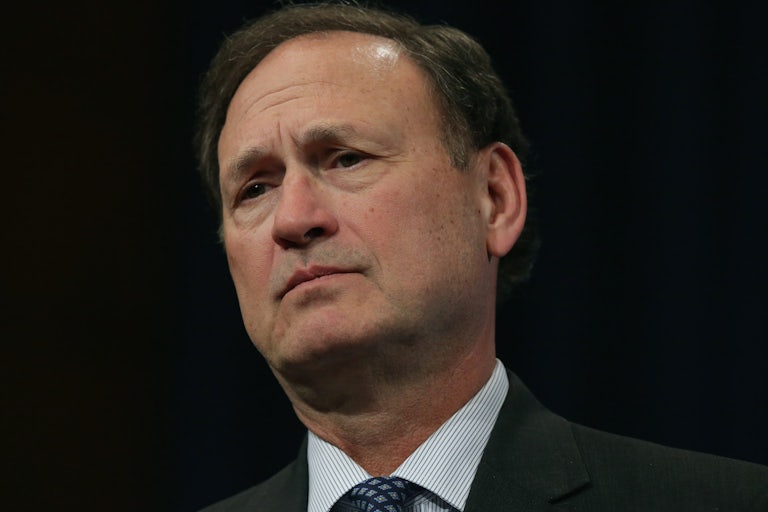
In oral arguments for a First Amendment case before the Supreme Court Wednesday, Justice Samuel Alito pursued an odd line of questioning regarding free speech and pornography.
The case, Free Speech Coalition et al. v. Paxton, concerns a Texas law that requires adult users of pornographic websites to verify their ages before they can view content. The law is opposed by free speech advocates, including the ACLU, which is representing a coalition of organizations, including some adult websites, in the lawsuit against Texas Attorney General Ken Paxton.
During Wednesday’s arguments, Alito brought up the pornographic website Pornhub, one of the members of the coalition, and asked the lawyer representing the coalition how much of Pornhub’s content is “obscene” to children. The attorney, Derek Shaffer, couldn’t provide exact numbers, but ultimately Alito and Shaffer arrived at an estimate of 70 percent. Then Alito revealed his ignorance about the topic.
“Is it like the old Playboy magazine; you have essays there by the modern-day equivalent of Gore Vidal and William F. Buckley Jr.?” Alito asked, drawing an audible laugh from Shaffer.
“Not in that sense, but in the sense you have wellness posts about women recovering from hysterectomies and how they can enjoy sex,” Shaffer replied. “That’s on there, discussions about age verification proposals and where the industry lines up, as far as what they think should be legislated and what should not.”
While Alito’s question might seem funny, it also creates the impression that only serious essays merit free speech protection, and nothing else, which doesn’t seem to be in line with what the First Amendment actually says.
Texas’s law, as well as similar laws in Republican-led states across the country, are part of a greater right-wing effort, as spelled out in the Project 2025 manifesto, to target not just pornography but also drag queens, trans people, LGBTQ library books, and more. By placing such a high standard for free speech, the right would be able to criminalize what it previously could only demonize.
